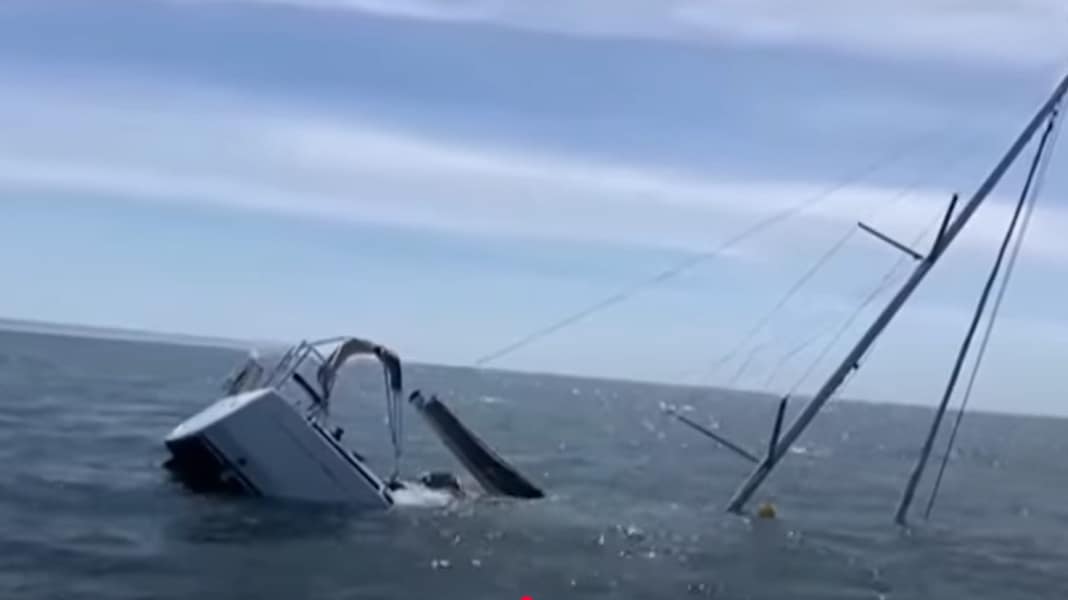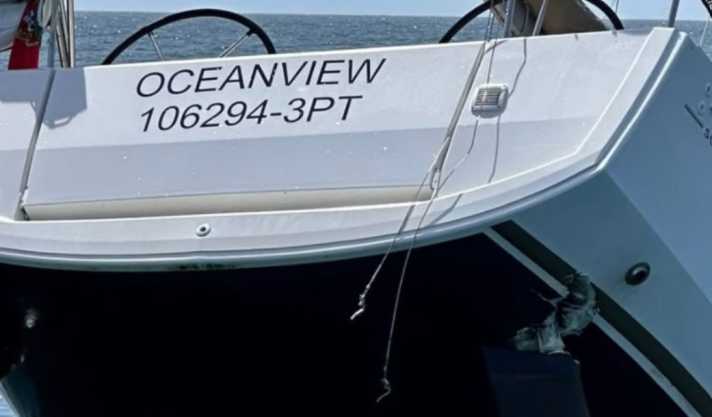
Several orcas sank a sailing boat off the Costa da Caparica near Almada, Portugal, on Saturday (13 September 2025). During the incident, the orcas damaged the rudder of the sailboat, causing it to take on water. Local boats tried to tow it, but the damage was too great. The boat quickly sank. The crew members were rescued by boats that were nearby. The position of the sunken boat was marked with buoys. A video shows the attack and its terrifying consequences. After the incident, the group of Iberian orcas continued on their way towards Cascais.
At this point, you will find external content that complements the article. You can display and hide it with a click.
An eyewitness tells
In a video from the Portuguese sailing school Terra Incógnita, which shows the same incident, the speaker reports: "I was off the coast of Caparica when a group of orcas had a collision with two sailing yachts. This group of orcas broke the rudder of a sailboat, (...), opening a hole below the waterline, allowing water to enter. We had a boat in the area that was watching dolphins (...) and came to the boat's aid. We tried to refloat it, but it didn't work and it sank, as you can see in the pictures. However, we managed to save the crew." He concludes by appealing to sailors: "We would like to reiterate that any aggressive behaviour towards the orcas could exacerbate the situation that already exists today, which may even be partly caused by humans. Be careful if you are travelling in the Lisbon area in the next few days."

More orca encounters on the same day
Also on Saturday, according to a report in the Portuguese magazine Sic Noticias According to the crews of two other boats, they had a similar nightmare - with a less serious outcome. Their boats were attacked by orcas off Cascais and Fonte da Telha beach, in an area with a water depth of less than 20 metres.
According to the Portuguese Maritime Rescue Authority (Autoridade Marítima Nacional), four people on a tourist boat had to be rescued in the first incident, while in the second case, five people on a sailing yacht travelling around five nautical miles off the coast required assistance. The rescue team found all the people involved physically unharmed. The boat in difficulty off Cascais was brought out of the danger zone with the help of another boat that was nearby.
The second attack in shallow water in just a few weeks!
For some years now, there have been increasing reports of attacks on sailing yachts in the west of the Iberian Peninsula, the Bay of Biscay and especially the Strait of Gibraltar. The media had recently been rather quiet about the orcas until 24 June, when a sailing yacht at Cabo Espichel on the Portuguese Atlantic coast was reported to have been attacked. was attacked by orcas at a water depth of only 16 metres. For around thirty minutes, the orcas crashed into the rudder blade of the Norwegian sailing yacht "Poniente", severely damaging it in the process. Fishermen rushed to the crew's aid and drove the killer whales away by circling around the "Poniente". The shipwrecked vessels were eventually guided into the harbour of Sasimbra by a lifeboat.
Areas with a water depth of less than 20 metres were previously considered relatively safe if sailors wanted to keep away from the killer whales. This safety no longer seems to exist.
Although researchers are trying to find an explanation for the behaviour and some initiatives are providing sighting and interaction data, sailing in the region remains a risky endeavour. Recent events are now contributing to further uncertainty.
